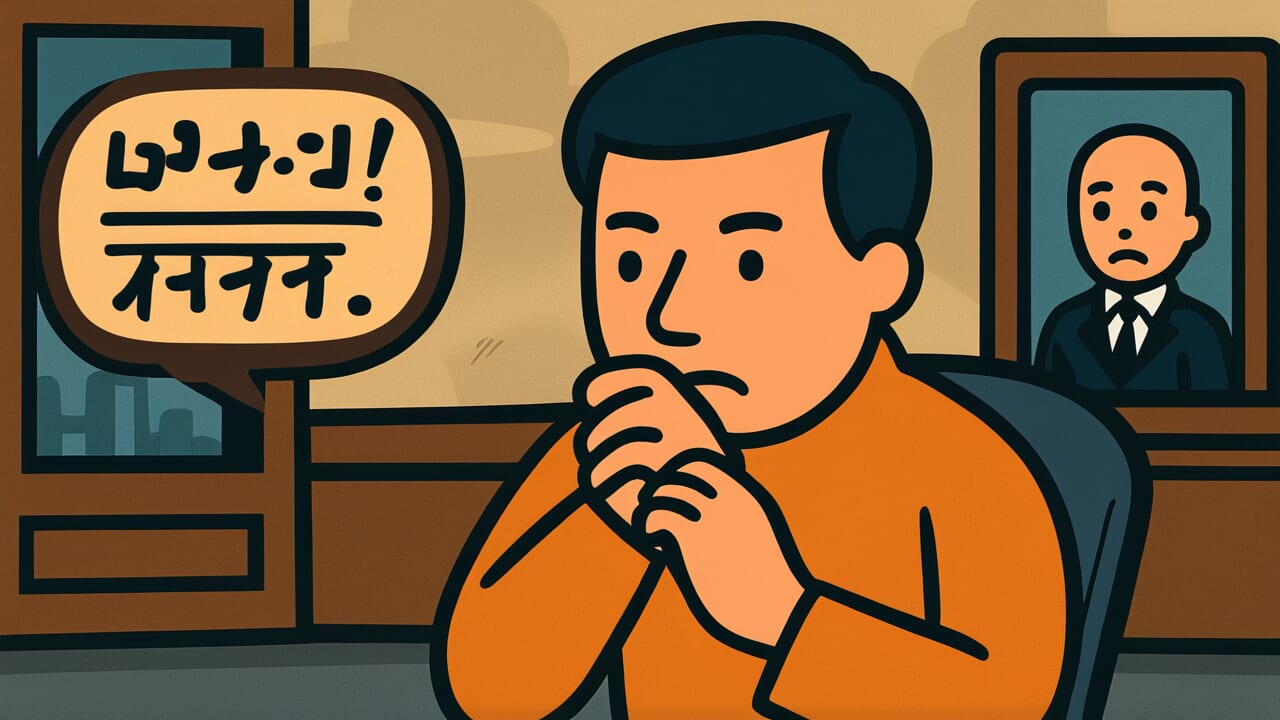How to Read “When angry, think of reason; when in danger, do not forget righteousness”
Ikari ni wa sunawachi ri wo omoi, ayauki ni wa gi wo wasurezu
Meaning of “When angry, think of reason; when in danger, do not forget righteousness”
This proverb means you should think about what’s reasonable when you’re angry. It also means you shouldn’t abandon justice when you’re in danger.
People tend to lose their rationality when emotions run high. They also lose it when danger threatens them.
When angry, you might say hurtful words without thinking. When your safety is at risk, you might act dishonestly to protect yourself.
However, this proverb teaches that these extreme moments are exactly when you must stay calm. You must remember reason and justice.
You can use this saying when you need to control your emotions. It also works when you’re making difficult decisions in tough situations.
Modern life offers many chances to lose your rationality. Social media arguments, workplace conflicts, and threats to your interests all test your self-control.
Remembering these words in such moments helps you maintain your dignity as a person.
Origin and Etymology
This proverb likely comes from ancient Chinese classics. It probably originated from Confucian philosophy, especially the ideal gentleman described in texts like the Analects and Mencius.
The phrase contrasts two extreme states: anger and danger. Anger represents emotional turmoil. Danger represents threats to life.
Both are moments when people easily lose their rationality. Ancient Chinese thinkers believed these extreme situations revealed a person’s true character.
The word “sunawachi” means “precisely at that moment.” It emphasizes the paradoxical teaching: exactly when you’re angry, exactly when you’re in danger.
In Japan, this saying became important during the Edo period in samurai education. Warriors constantly faced life-threatening situations.
They also frequently encountered anger in their relationships with lords and colleagues. Maintaining proper judgment without being swept away by emotions was considered a samurai virtue.
This proverb teaches more than just self-control. It teaches the importance of preserving your dignity as a human being.
Usage Examples
- I was angry at my subordinate’s mistake, but I reminded myself: “When angry, think of reason; when in danger, do not forget righteousness.” So I started by confirming the facts first.
- Reporting this wrongdoing would endanger my position, but I decided to do what’s right, following the spirit of “When angry, think of reason; when in danger, do not forget righteousness.”
Universal Wisdom
Humans are emotional creatures. When strong emotions like anger or fear arise, our brains switch to primitive response mode.
The prefrontal cortex, which handles rational judgment, weakens. We become dominated by the instinctive choice of “fight or flight.”
This proverb has been passed down for hundreds of years because it understood this human weakness. Staying calm when angry sounds simple but is incredibly difficult.
Maintaining justice when in danger goes against survival instinct. That’s exactly why our ancestors left us these words.
Interestingly, this proverb doesn’t say “don’t get angry” or “avoid danger.” Anger and fear are natural human emotions.
The problem is being completely controlled by those emotions. Feeling emotions while maintaining rationality at the same time is what defines human dignity, according to this proverb.
Extreme situations reveal a person’s true worth. This truth remains unchanged across time.
Anyone can be righteous during peaceful times. But your true character appears when emotions shake you violently, when your interests are threatened.
When AI Hears This
The human brain has a critical processing speed difference between emotion and reason. The amygdala detects danger or insult and triggers anger or fear in just 0.2 seconds.
Meanwhile, the prefrontal cortex needs about 0.5 seconds to make rational judgments. This means emotions start running wild 0.3 seconds before reason catches up.
This time lag explains why this proverb uses imperative commands like “think” and “do not forget.” The neural circuit structure prevents reason from winning automatically, so conscious effort is necessary.
Modern neuroscience shows that repeated training strengthens the inhibitory signals from the prefrontal cortex to the amygdala. For example, developing a habit of deep breathing when you feel anger makes the prefrontal inhibitory circuit thicker and stronger.
What’s fascinating is that ancient sages accurately identified this neurological weakness without knowing brain structure. Through experience, they understood that while you can’t stop the initial emotional response, you can control it by intervening with consciousness immediately after.
This proverb isn’t just a moral lesson. It’s a practical cognitive strategy to compensate for the brain’s processing speed difference.
To fill that 0.3-second gap, humanity has been commanding itself for 2,500 years.
Lessons for Today
This proverb teaches you wisdom for managing emotions well. When someone’s social media post makes you angry, take a breath before reacting immediately.
When you receive unfair treatment at work, organize the facts before responding emotionally. These small practices will greatly change your life.
Modern society increasingly demands instant responses. Email and message replies, comments in meetings, social media posts all pressure you to react quickly.
However, accuracy over speed, thoughtfulness over reflex will always protect you in the long run.
Also, don’t lose sight of what’s right even when your interests are threatened. This isn’t idealism but actually the wisest way to live.
Why? Because bending justice for temporary gain hurts your own heart and loses others’ trust.
Emotions aren’t your enemy. Just don’t let them control you completely.
Reason isn’t cold. Rather, it’s a warm shield protecting your life. Balancing these two is true strength.



Comments